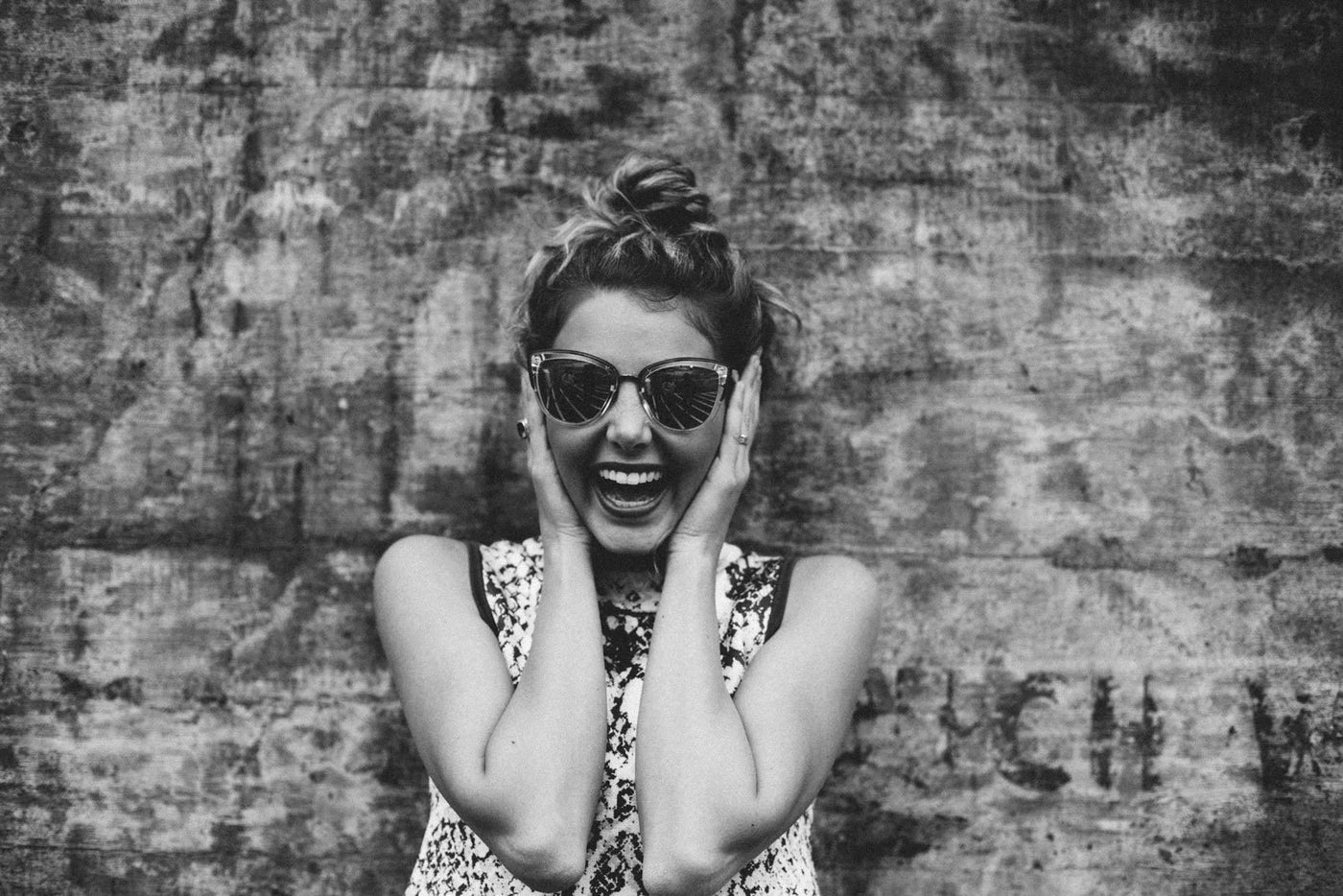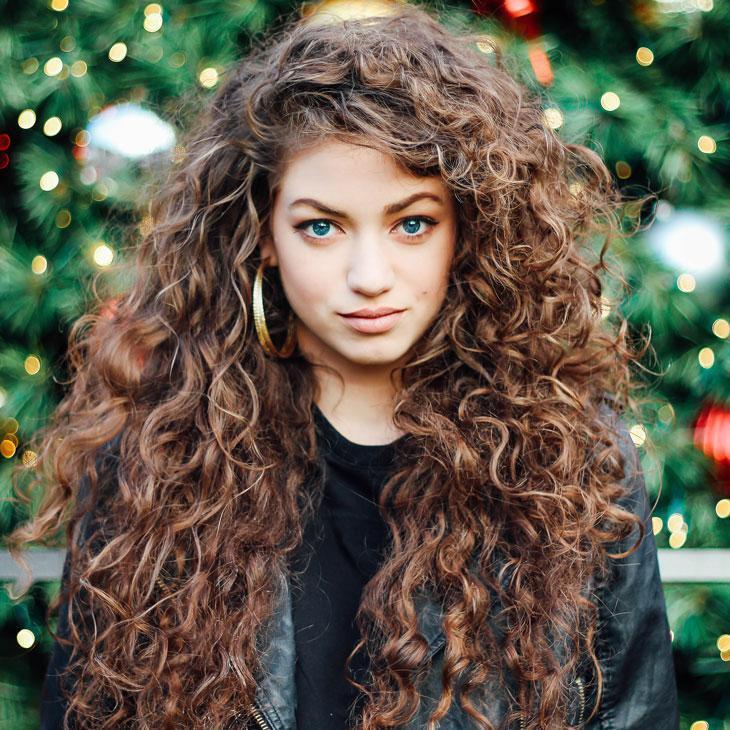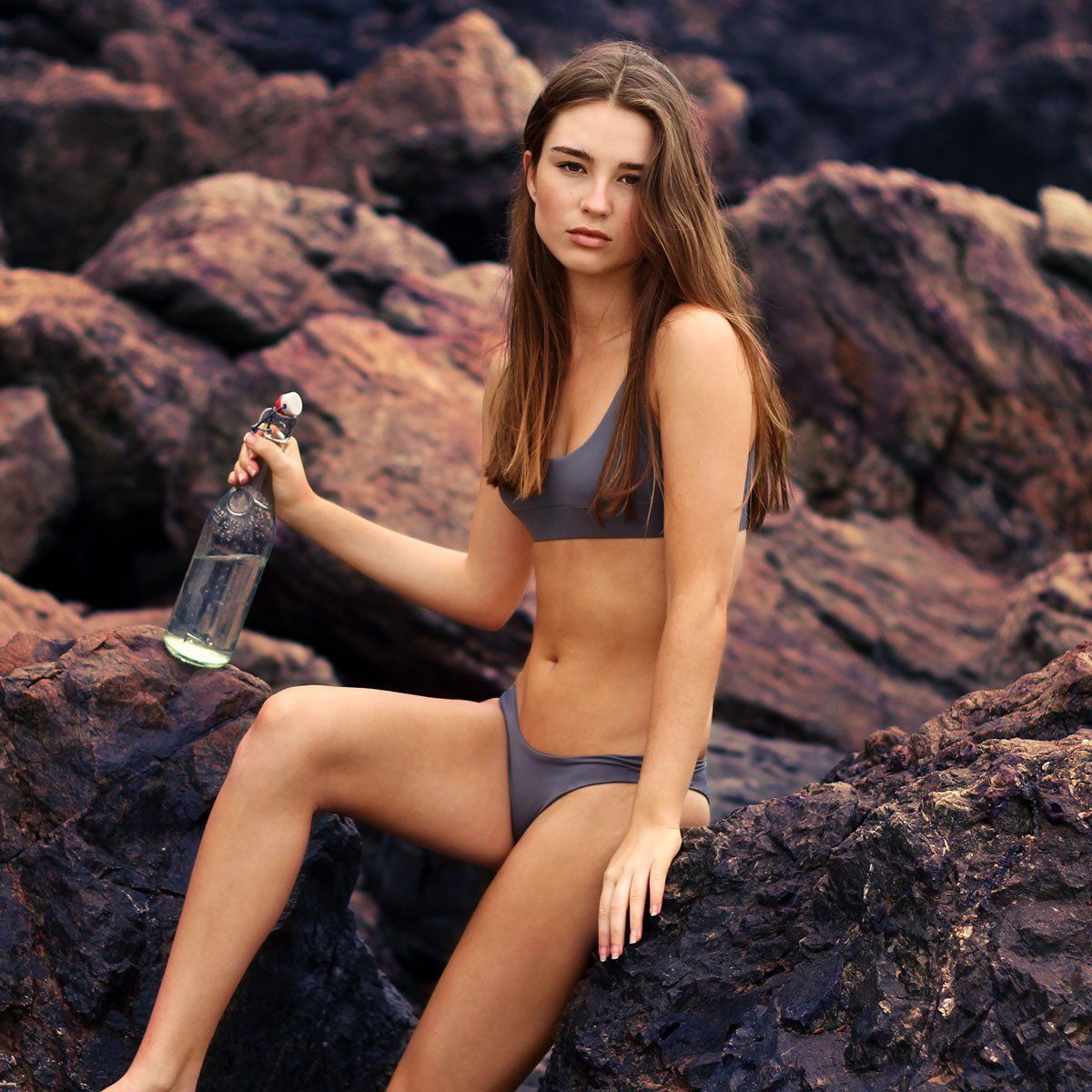
Have you ever dreamed about changing the way you use your Hairdryer? Prepare to be amazed! 0
Say goodbye to the deafening, droning and unhealthy sounds of your hairdryer.
Hairdryers are noisy!
Ladies, and some of you gents, it’s almost a daily ritual so maybe we’re just used to putting up with it, but…
What if I told you there was an easy way to get rid of that ringing sound in your ear?
Working in a Salon with loud music and not being able to talk over the sound of your hair dryer, or when you are at home and have children who hate the sound of a loud hair dryer.
Wouldn’t it be nice to have great hair without the unwanted damage to your ear drums? Get excited because here is a solution for you.
I present the Parlux Melody Silencer! You will definitely want to get your hands on one of these, and priced at just $29.95!

6 Ways to Grow Long Hair 1
Cut Your Hair To Grow Long Hair

Hard to believe but scissors may be the answer to getting long locks. This might sound absurd but just hear us out. Getting a regular trim every 4 to 6 weeks will remove those split ends. Which is vital if you want to grow long hair because split ends will end up creeping their way along your shaft and in the long run you'll have to cut off more than if you trimmed regularly.

How To Get Surf Hair 0
Get Braiding

Firstly take a shower and wet your hair the night before, using cooler water gives better results as this reduces the amount of frizz. Towel dry your hair and evenly divide it into two sections. Braid each section and sleep with the braids in place. In the morning take the braids out to reveal your stylish new surf hair.
What Is Hair Conditioner And Why Do You Need It? 0
What Is Hair Conditioner And Why Do You Need It?

Have you ever wondered what is conditioner and where it came from? Who invented it and why do we need it?
Most of us just switch off and go into auto pilot, grab the bottle marked conditioner, squeeze out far too much and plonk it on our hair.
Not much to think about here, except to just keep rinsing it out.
For me as an apprentice hairdresser back in the 80’s, conditioner was a much more complex thing with a variety of smells, formulas, PH levels, and reasons for using it.
I found out rather quickly that a conditioner has the opposite effect to shampoo or reversing some of the things that shampoo naturally does to your hair like swelling of the cuticle that leaves your hair exposed to all the elements and hairstyling. Conditioner also closes the cuticle leaving it flat and not raised without gaps. So when hair is conditioned, it is ready for styling and has a greater chance of making it through the day without serious damage.
I also understood that for chemically treated hair, conditioner had an even more important reason to be used, and that was to return the hair back to a stable PH level again always to reverse and protect the hair.
And of coarse I realised pretty quickly that if I wanted to comb hair or remove knots I could not do it without using conditioner.
Still I wondered where did this second step in the hair-washing regime start?
Where Did Conditioner Come From?
For many centuries natural oils have been used to condition and control human hair. However, it seems that modern hair conditioner was invented at the turn of the 20 th century when perfumer Ed Pinaud presented a product he called brilliantine in Paris. His product was aimed at men’s hair, beards, and moustaches.
Since then modern science has improved the hair conditioner industry using new products and compounds (some good and some not so good) such as silicone, and fatty alcohols, that allow the hair to get benefits without feeling greasy or heavy.
How Does Conditioner Work?
Without getting into heavy chemical science, it’s interesting to note that the conditioner molecule has a positive charge that binds to the negative charge of a hair strand. The attraction is so strong that the conditioner (surfactants) completely surround the strand and cover the cuticle like a customized hair envelope. The small amount of acid in the conditioner makes the cuticle tighten up against each other and the hair feels smooth again, even after you rinse the conditioner out. Pretty neat yeah?
What Conditioner Do I need For My Hair Type?
Although there are many to choose from finding the right conditioner for you is usually as easy as purchasing the same matching one to your shampoo. So if your shampoo is for fine hair, coloured hair, oily hair, or dry hair, your conditioner will compliment what your shampoo is designed to do and generally this is what you should purchase.
The exceptions to this rule is where
- You have oily roots with long hair that requires a heavier or stronger moisturising effect from about the mid-lengths and down to the ends. In this case keep your dry hair conditioner off the root area.
- You are using a scalp relief shampoo for dandruff or flaky scalp but your hair is coloured, long and dry. Once again here you would select the apprpriate shampoo for your scalp and conditioner for your hair.
See Conditioner types here; find the one for your hair type.
NFUZION Body Energising Conditioner for people with fine hair and oily scalps. Retail price $18.95
NFUZION Blonde Revitalising Conditioner will neutralise and tone brassy and yellow tones on blonde hair. Retail price $18.95
NFUZION Replenish Moisturising Conditioner for coloured, stressed, or damaged hair. Retail price $18.95
- Liz Karbowiak
- Tags: Blonde Coloured Conditioner Dry Energising Fine Hair Moisturing
The best shampoo for dry hair 0

What is dry hair?
When you run your fingers through your hair, does it feel rather brittle, crunchy, or rough to touch? Does it look dull, lack body & bounce, and just look like straw? Is it hard to brush, and does it tangle and get knotty really easily?
If anything from the summary above applies to you, then you have dry hair.
People often write to us to ask for advice for their dry hair, and invariably they have three questions that always stand out,
1- Why is my hair dry?
2- Why do I have dry hair?
3- What do I need to do to fix my dry hair problem?
To begin with, it’s worth noting that nobody is born with dry hair. Hair is simply a protein chain that grows out of your scalp, and with the exception of bad health or particular drugs that can alter the protein chains composition, for the most of us what happens after hair is born is what changes it to become dry.
So once your hair is “born” or formed down deep in the Papilla, it begins to grow outwards and at the same time your scalp produces sebum (natural oil) to help lubricate it, and keep it moisturised.
Sometimes not enough sebum is produced that leads to dry hair. This lack of natural oil leaves the hair exposed, or raw and dehydrated, making it look, and feel dry.
External factors that make your hair dry:
On top of this natural reason for people having dry hair, there are many other contributing factors that can make your hair even dryer than it should be including;
- Using a harsh shampoo that will strip away all of your natural oils and leave it exposed to moisture loss.
- Using heat appliances that smooth out, straighten, or curl your hair by temporarily changing the moisture structure within the hair itself.
- Blow-drying your hair too often.
- Using Alcohol based styling products that evaporate moisture from the hair.
- Exposing your hair to the sun, UV light, wind, or dry air, even air conditioning.
- Using chemicals like hair colour, bleach, or relaxers that can damage the cuticle layer and leave your hair damaged and feeling dry.
- Using a brush with split bristles that can damage your hair and leave it feeling rough and torn.
So as you can see, there are so many reasons why hair becomes dry, and so it’s no wonder that the ratio of dry hair to oily hair across the Western World is 90% for dry hair, and only 10% for oily hair.
How to fix dry hair:
What dry hair needs most and is screaming out for is moisture. Therefore naturally the first place to start, is with a good moisturising shampoo that is designed specifically to help bring dry hair back to good health.
One of the best dry hair shampoo’s is NFUZION Replenish Shampoo.
Used by plenty of people, this dry hair shampoo is a “moisture drink” for dry, coloured, damaged, stressed, and dehydrated hair due to a number of key ingredients that include;
- Hydrolysed Silk Protein that will strengthen & seal damaged hair fibres leading your hair to feel silky soft & smooth with plenty of shine.
- Panthenol that directs moisture into hair to thicken the hair fibre, and that will maintain moisture balance of your hair & scalp.
- Gentle but Strengthening Cleanser that will get your hair clean and add some protein at the same time.
- PH6,this is where healthy hair needs to be and this dry hair shampoo will provide you with this balance.
The NFUZION Replenish Shampoo also comes in a 1 litre size and is great for all hair types and textures, from fine, to coarse, straight, to curly. It is affordably priced at only $18.95 for the 375ml size, or $26.95 for the 1 litre size where your hair will feel much better immediately after using it just once.
The next thing to do is use a dry hair conditioner to seal the hair and leave it with the same moisturising properties. NFUZION Replenish Conditioner is the perfect compliment to the shampoo.
A few more ways to fix dry hair:
If your hair is really dry, it may need some extra help to keep it moisturised and protected. This is very important particularly if your hair is long and if you overdo any of the dry hair external factors we mentioned before.
NFUZION Professional Hair Booster will protect against UV light, chlorine, and salt water. A must for the entire family in Summer.
And for hair that is already damaged we recommend:
NFUZION Intensive Professional Repair Treatment that will reconstruct your dry hair with Silk Amino Acid Complex to strengthen and repair it.
So if you have dry hair, don’t despair…the good news is that it can be fixed once you use the best dry hair shampoo, conditioner, and other complimenting dry haircare products.
Try them for yourself...you will be glad that you did.

- Liz Karbowiak
- Tags: Best Booster Conditioner Damaged Dehydrated Dry Hair Haircare Hydrolysed Moisture Moisturing NFuzion Panthenol Replenish Shampoo Silk Stressed Treatment
What is the best shampoo for your hair and scalp? 0

What exactly is Shampoo?
Most people know that shampoo is usually a liquid, or gel applied to wet hair that creates lather and bubbles, meant to clean or remove oil, dirt, skin particles, dandruff, styling agents, and anything else that people or the atmosphere can throw at their hair and scalp.
Pretty simple you would think?
However, while the concept is easy enough to comprehend, many manufactures with their marketing jargon, misleading graphics, ingredient lists, and "how to use" directions have left most people confused about what shampoo they actually need, and which one is best for their hair and scalp.
To understand shampoo better it is worth knowing a bit more about it's origins, and how it has evolved or changed throughout the ages.
History of shampoo:
Ancient Hindi tribes invented shampoo. The word shampoo originally comes from the Hindi language and means “ to massage the head with hair oil”. A gentleman called Sake Dean Mahomed, opened the first shampoo bath, introducing the term and service in Brighton England in 1814.
In the 1900s, the meaning of the word shifted from massage of the scalp to that of applying soap to the hair, which is what early shampoo was, a soapy detergent. This soap certainly cleaned the hair, but left it feeling and looking rather bad.
Modern day shampoo:
In the 1930's, a crafty English hairdresser started mixing herbs and fragrances together with surfactants that resulted in the hair looking healthy and smelling even better. This was the first known synthetic or non soap shampoo.
These days, shampoo has evolved into many different formulas for a range of hair and scalp types. A mixture of organic and plant derived extracts or oils added with gentle surfactants, preservatives, and fragrances will clean and nourish your hair, and help your scalp. Modern day shampooing happens without irritation to your scalp or any adverse effects to your hair either. As a matter of fact, using the right shampoo will genuinely improve the condition of your hair, or alleviate the hair and scalp problem, but how?
How does shampoo work?
As we all know, oil and water do not mix together. Imagine a shampoo molecule looking like a tadpole, with a head and a tail. When shampoo is applied to your hair, it works because one part of the molecule (the head) is attracted to and sticks to the oil on your hair shaft, while the other part (the tail) is attracted to and sticks to water. So when running water is poured over your scalp to "rinse" away bubbles, this strips oil, sebum, and other impurities off your hair. At the molecular level, it’s like a tug of war effect. Pretty cool isn’t it?
So what shampoo is best for your hair and scalp?
Now that we understand how shampoo works, it is also important to know that changing specific ingredients in shampoo will treat the many different problems that people find themselves with all over the world. The list below links to other pages that explains in more detail about each shampoo type, while providing you with information on the best shampoo for your hair and scalp.
Remember, that everybody is different and therefore will need to find a shampoo that is best suited to his or her own hair and scalp issues at any given time. Also, be aware that your shampoo may need to change over time dependant on your own body changes, where you go and “take your hair”, and what you do to it.
Find your best suited shampoo type here -
Best oily hair shampoo & information: If your scalp feels oily or greasy after just one day, and if your hair is always flat with no body
Best dry hair shampoo & information: If your hair feels dry and looks stressed.
Best blonde hair shampoo & information: If your hair is starting to look too gold, & brassy.
Best dandruff shampoo & information: If your have a flaking scalp.
Best clarifying shampoo & information: If your hair looks dull and you can feel a build up of styling products or even chlorine in it.

